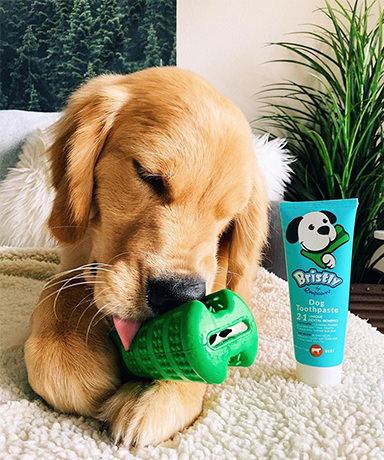Your Cart is Empty

Time to make your inbox pawsome
Sign up today and get 10% OFF your first purchase!


Sure, it is fairly common for your dog to scratch himself and sneeze every so often, but if your pooch is incessantly scratching his ears to the point where he yelps, or is chewing on his paws so much that you swear they're covered in peanut butter, it might turn out to be allergies.
Allergies can be a reaction to something in your pup's environment, like dust or mold, or the signs above could even be related to a particular type of food. But for this post, we're focusing on environmental allergies. When your dog's immune system comes into contact with a substance that it hasn't seen before, like freshly cut grass after a long winter, or pollen from blooming flowers, it may "overreact" to these substances, thinking they're dangerous and release a substance called histamines. Histamines are what cause the watery eyes, itchiness, and inflammation.
The best way to diagnose allergies in dogs is to go to the vet and get a special test. The intradermal skin test, comparable to the allergy test that humans use, is when the vet takes a small sample of the allergen and injects it under the dog's skin, then monitors the area for swelling, irritation or even hives.
When the vet confirms that your dog indeed is suffering from allergies, they can create a special shot for your pup that will help relieve symptoms of the environmental allergies.
Certain over the counter antihistamines like Benadryl or Zyrtec have been known to help allergies in dogs, just ask your vet before administering these to your pet, as the side effects can range from extreme drowsiness on one end of the spectrum to hyperactivity on the other.
Just make sure that the antihistamine you buy doesn't have any other ingredients like decongestants such as pseudoephedrine, as that is not safe for dogs. If the antihistamines aren't doing enough, talk to your vet about certain prescriptions to relieve allergies.
Giving your dog frequent baths can also help with the skin irritation; try using an oatmeal shampoo for extra moisture and to soothe itchy skin. Adding fatty acid supplements or using a topical regimen of tea tree oil, coconut oil or fish oil has also been known to soothe irritated skin.
